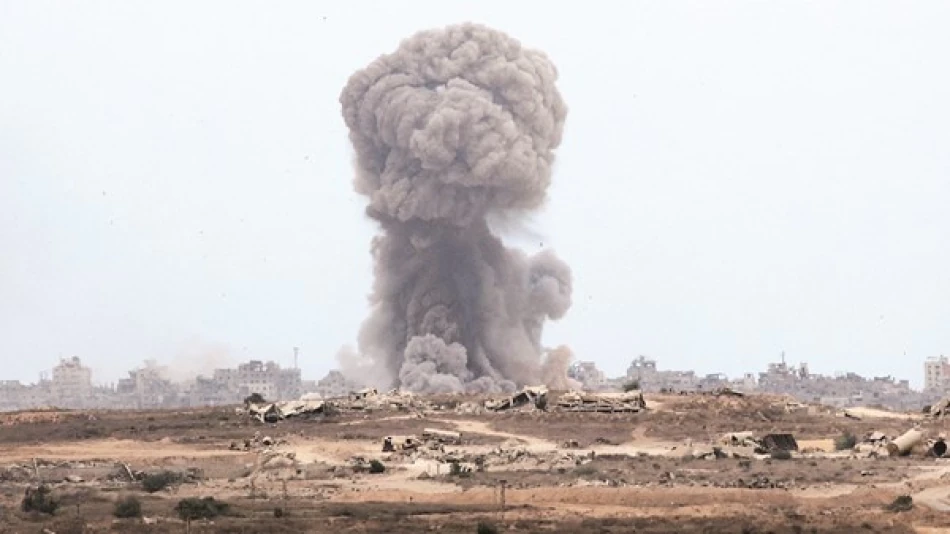
Experts Weigh In: Gaza Agreement's Success Hinges on Parties' Commitment
Political analysts say the Gaza ceasefire agreement marks a crucial step toward easing the humanitarian crisis affecting hundreds of thousands of civilians. But they stress that real guarantees are needed to make sure the next phases actually happen.
The first phase of the Gaza ceasefire deal came together after intense American pressure and international insistence on resolving the hostage and prisoner situation. Dr. Amer Al-Sabaileh, a Jordanian strategic expert, says this is just the beginning. The real test comes in moving to phase two without the whole thing falling apart.
"American guarantees and international pressure on all parties were clear in getting this phase done," Al-Sabaileh explains. "But announcing a ceasefire is a promising start - it's not peace itself. The real challenge is in implementation, sequencing, patience, and the political vision behind it."
He warns against rushing into hasty agreements when the next steps remain unclear. This concern echoes across expert opinions - everyone agrees the deal matters, but sustaining it is another story entirely.
Palestinian factions are pushing for guarantees that prevent renewed escalation after Israeli hostages are returned. Dr. Ayman Al-Raqab, a political science professor, points to significant efforts being made to keep the current track successful. Egyptian President Abdel Fattah Al-Sisi's invitation to US President Donald Trump to visit Cairo sends an encouraging message to all parties involved.
The negotiations showed serious momentum, but challenges remain around actually implementing what gets agreed on the ground. Dr. Tayseer Abu Jumaa from Palestine University emphasizes the need for strong international and regional guarantees to sustain any agreement.
Abu Jumaa praises Arab success in creating a political umbrella that brought together opposing parties, giving negotiations strategic weight. The next phase will be decisive, especially regarding Gaza's reconstruction, ensuring freedom of movement, and opening border crossings. These issues represent a real test of the international community's seriousness in supporting Palestinians beyond just focusing on prisoner exchanges.
Palestinian political scientist Ayman Shaheen notes the negotiations involved extensive efforts to reach a comprehensive agreement ending Gaza's escalation. The response from concerned parties reflects growing awareness of the need to end the cycle of violence, especially after two years of escalation and thousands of civilian casualties.
The agreement won't stop at prisoner exchanges. It includes field arrangements ensuring permanent ceasefire and Gaza's reconstruction, with guarantees for Palestinian rights to establish an independent state.
American political analyst Irina Tsukerman cautions that while this agreement helps ease humanitarian suffering, this phase is only the first - a partial, limited truce, not a final peace agreement. How ceasefire implementation, prisoner exchanges, troop withdrawals to agreed lines, and opening relief corridors actually work aims to build trust between parties. But it doesn't address deeper fundamental questions about Gaza's future governance, Hamas's weapons, and reconstruction.
"Ceasefire continuity depends entirely on what happens next," Tsukerman warns. "The transitional phase must be managed calmly, or the truce could collapse quickly."
She raises legitimate concerns that some parties might push for a partial agreement now just to score a diplomatic victory globally, rather than addressing the conflict's core. If parties pursue agreements within unrealistic timelines or insist on weak provisions just for ceremonial signing, they risk undermining long-term stability.
Political analyst Jacqueline Hillman suggests Trump's administration found the "magic formula" to stop Gaza's war, emphasizing the importance of ceasefire after the humanitarian crisis reached its peak and exceeded all military and political considerations. The plan is ambitious and reflects a direction toward Palestinian-Israeli dialogue to prepare conditions allowing peaceful coexistence and shared development between them.
Most Viewed News

 Layla Al Mansoori
Layla Al Mansoori






